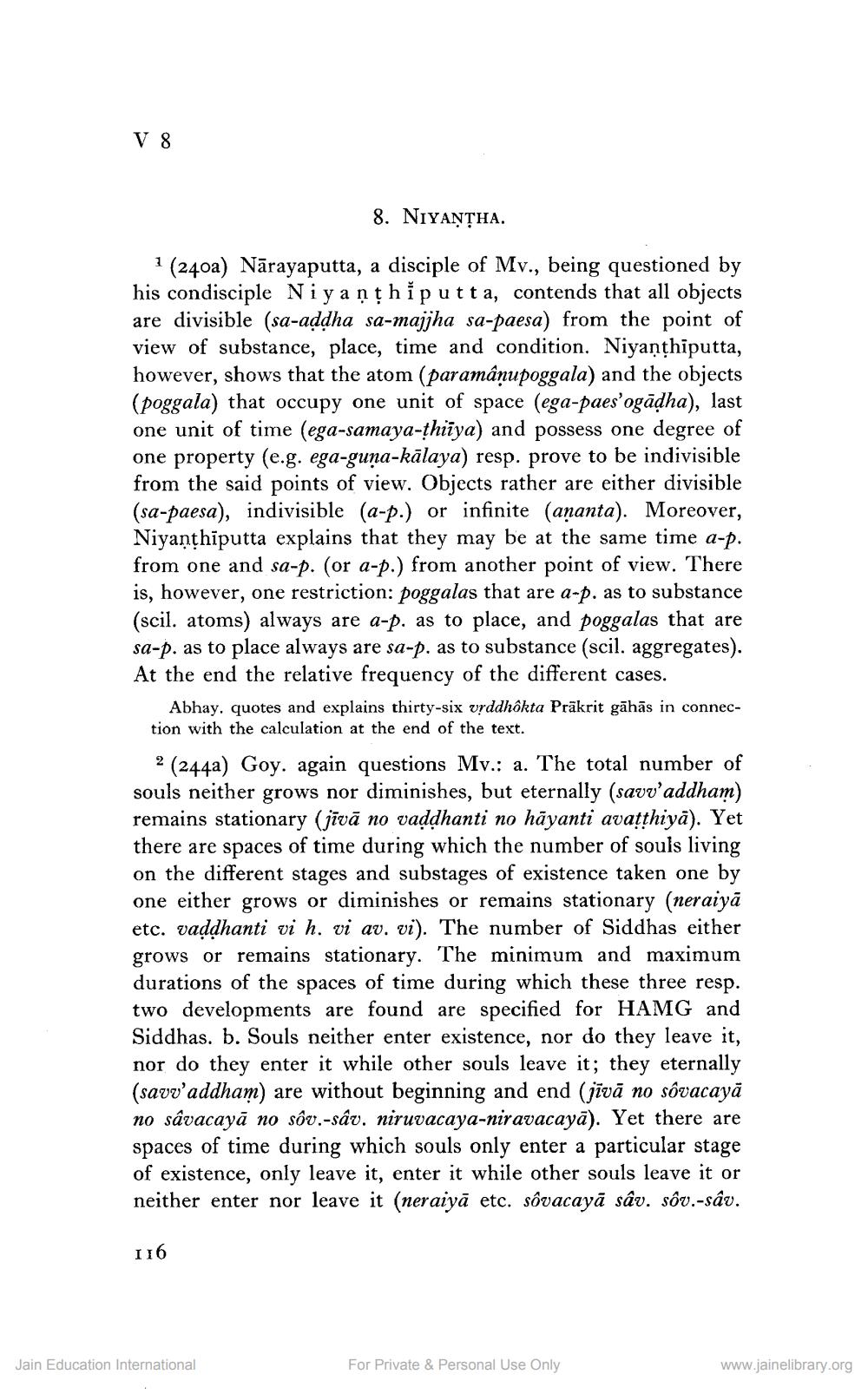________________
V8
8. NIYANTHA.
1 (2402) Nārayaputta, a disciple of Mv., being questioned by his condisciple Niya n țhip utta, contends that all objects are divisible (sa-addha sa-majjha sa-paesa) from the point of view of substance, place, time and condition. Niyanthiputta, however, shows that the atom (paramânupoggala) and the objects (poggala) that occupy one unit of space (ega-paes'ogādha), last one unit of time (ega-samaya-thiīya) and possess one degree of one property (e.g. ega-guna-kālaya) resp. prove to be indivisible from the said points of view. Objects rather are either divisible (sa-paesa), indivisible (a-p.) or infinite (ananta). Moreover, Niyanthiputta explains that they may be at the same time a-p. from one and sa-p. (or a-p.) from another point of view. There is, however, one restriction: poggalas that are a-p. as to substance (scil. atoms) always are a-p. as to place, and poggalas that are sa-p. as to place always are sa-p. as to substance (scil. aggregates). At the end the relative frequency of the different cases.
Abhay. quotes and explains thirty-six vrddhôkta Prākrit gāhās in connection with the calculation at the end of the text.
2 (244a) Goy. again questions Mv.: a. The total number of souls neither grows nor diminishes, but eternally (savv'addham) remains stationary (jīvā no vaddhanti no hāyanti avatthiyā). Yet there are spaces of time during which the number of souls living on the different stages and substages of existence taken one by one either grows or diminishes or remains stationary (neraiyā etc. vaddhanti vi h. vi av. vi). The number of Siddhas either grows or remains stationary. The minimum and maximum durations of the spaces of time during which these three resp. two developments are found are specified for HAMG and Siddhas. b. Souls neither enter existence, nor do they leave it, nor do they enter it while other souls leave it; they eternally (savv'addham) are without beginning and end (jīvā no sôvacayā no sâvacayā no sốV.-sâv. niruvacaya-niravacayā). Yet there are spaces of time during which souls only enter a particular stage of existence, only leave it, enter it while other souls leave it or neither enter nor leave it (neraiyā etc. sôvacayā sâv. sôv.-sav.
116
Jain Education International
For Private & Personal Use Only
www.jainelibrary.org




